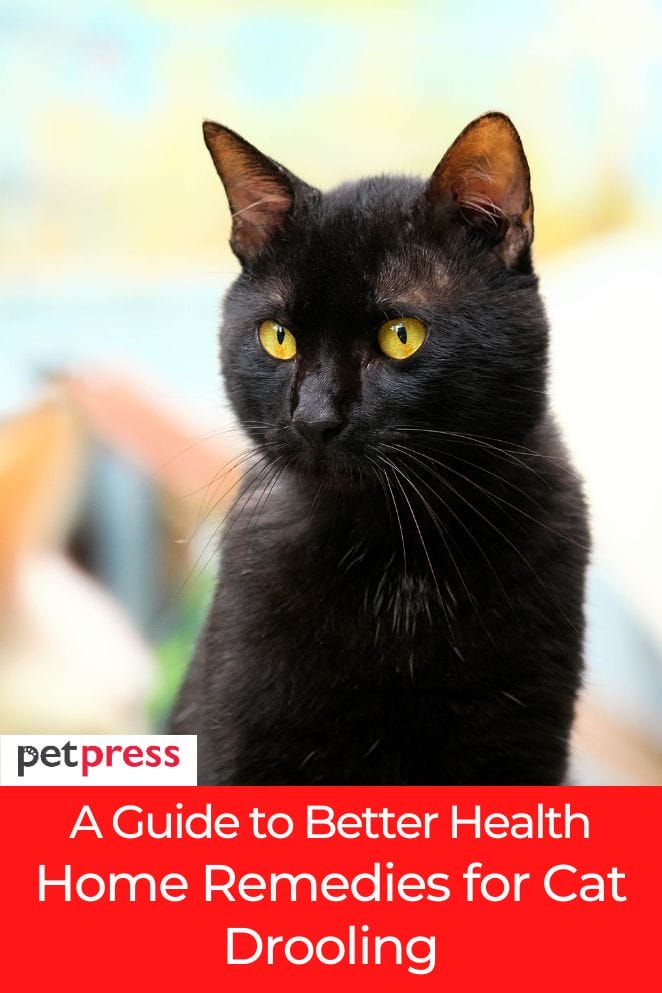
Seeing your cat drooling can be alarming, especially if it’s not something they usually do.
While occasional drooling can be normal, excessive drooling could indicate an underlying issue that needs attention.
In this article, we’ll explore the common causes of cat drooling, home remedies you can try, additional tips to manage the drooling, and when it’s necessary to consult a veterinarian.
Causes of Cat Drooling
Cats might drool for a few different reasons, and understanding these can help you figure out what might be going on with your pet.
Here are some common causes of drooling in cats:
Dental issues
Just like people, cats can have dental problems that make their mouths uncomfortable.
Issues such as gingivitis (inflammation of the gums), periodontal disease (which affects the tissues around the teeth), or broken teeth can cause your cat to drool.
If your cat’s gums are infected or inflamed, it can be painful and lead to an increase in saliva production.
Nausea
Cats can also drool when they feel nauseous.
This might happen because of motion sickness, side effects from certain medications, or stomach issues.
If your cat has an upset stomach, drooling might be a way for them to cope with the discomfort.
Foreign objects
Sometimes, a cat might get a small object like a piece of string or a tiny toy stuck in their mouth or throat.
This can cause irritation and make them drool as their body tries to deal with the foreign object.
Toxic substances
If a cat ingests or licks something harmful, such as certain plants, household chemicals, or foods that are toxic to cats, drooling can be a sign of poisoning.
It’s important to be aware of what your cat has access to and keep harmful substances out of reach.
Respiratory infections
Upper respiratory infections can lead to drooling, especially if the infection causes mouth ulcers or nasal discharge that irritates the throat.
When a cat has trouble breathing or swallowing comfortably, it might start to drool more than usual.
Oral ulcers
Conditions like feline stomatitis, which involves painful sores in the mouth, can also cause excessive drooling.
These ulcers can make eating and drinking painful, leading your cat to drool as a response to the discomfort.
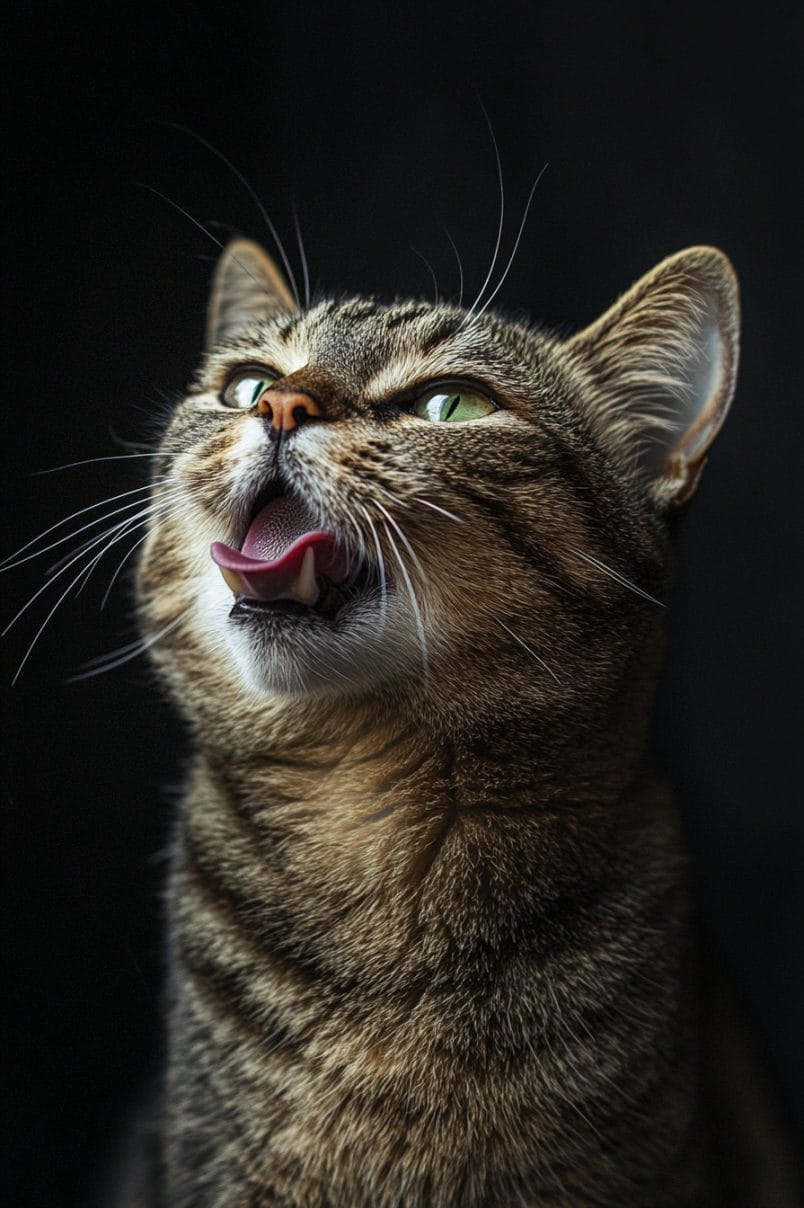
Home Remedies for Cat Drooling
If your cat is drooling, there are several home remedies you can try to help manage the situation and provide comfort:
Dental care
Dental problems are a common cause of drooling.
To help with dental issues, start by brushing your cat’s teeth regularly using a toothpaste made specifically for cats.
This helps remove plaque and prevent gum disease.
You can also offer dental chews and toys designed to clean their teeth and keep their mouth healthy.
Regular visits to the vet for dental check-ups are also crucial to catch and address any oral health issues early.
Hydration and diet
Ensuring your cat is well-hydrated is important, especially if they are drooling due to nausea or mouth discomfort.
Wet cat food can be gentler on their mouth and helps with hydration.
You might also mix a bit of water or low-sodium broth into their food to encourage them to eat and drink more.
Comfort and calm
Stress can worsen drooling, so it’s important to create a calm and comfortable environment for your cat.
Provide plenty of cozy hiding spots and resting areas where your cat can feel safe.
Pheromone diffusers, which release calming scents, can also help reduce stress and anxiety.
Inspect for foreign objects
Sometimes, drooling is caused by something stuck in your cat’s mouth.
Gently check their mouth for any foreign objects like bits of string or small toys.
If you find something, carefully remove it.
However, if the object is deeply lodged or your cat is in pain, it’s best to seek help from your vet.
Natural remedies
Certain herbal remedies might offer relief.
Chamomile tea, known for its soothing properties, can be helpful.
Brew some chamomile tea, let it cool, and offer a small amount to your cat.
Be sure to consult with your vet before introducing any new treatments to ensure they’re safe and appropriate for your cat’s condition.
Regular check-ups
Regular veterinary visits are essential to monitor your cat’s overall health.
These check-ups can help identify and address any underlying issues that might be causing drooling.
Keeping up with vaccinations and routine exams can prevent more serious health problems down the line.
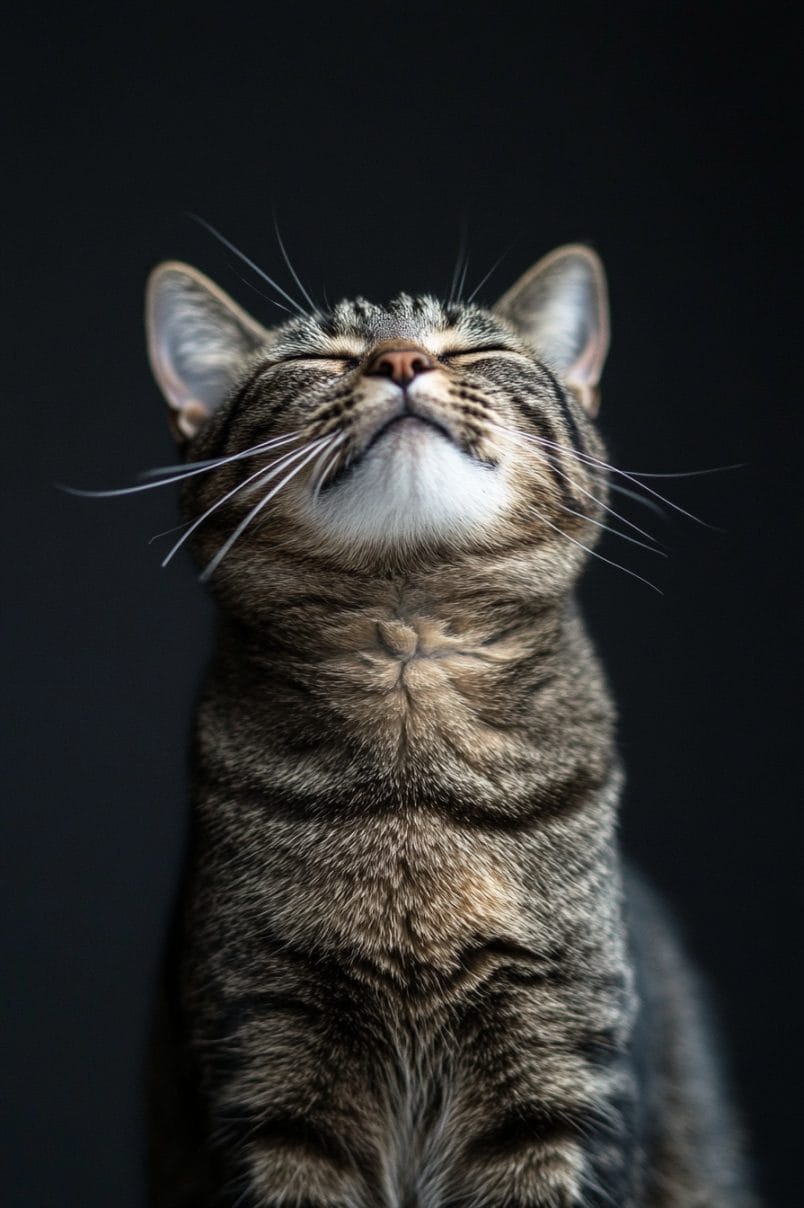
Additional Tips
Monitor eating and drinking
Keep a close eye on how much your cat is eating and drinking.
If you notice a sudden drop in their appetite or if they’re drinking less water than usual, it could be a sign of a more serious health problem.
Maintain a clean environment
Keeping your cat’s environment clean is important for their health.
Regularly wash their feeding bowls, toys, and bedding to prevent the buildup of germs and bacteria.
A clean environment helps reduce the risk of infections that could contribute to drooling or other health issues.
Keep toxic substances out of reach
Make sure that potentially harmful substances are safely out of your cat’s reach.
This includes household cleaners, medications meant for humans, and certain plants that are toxic to cats, such as lilies.
Keeping these items away from your cat can prevent accidental ingestion and the resulting health problems, including drooling.
Use a Humidifier
If your cat is dealing with a respiratory infection, a humidifier can be a helpful tool.
It adds moisture to the air, which can keep their nasal passages and throat from drying out and reduce irritation.
This might help ease some of the discomfort that could be causing drooling
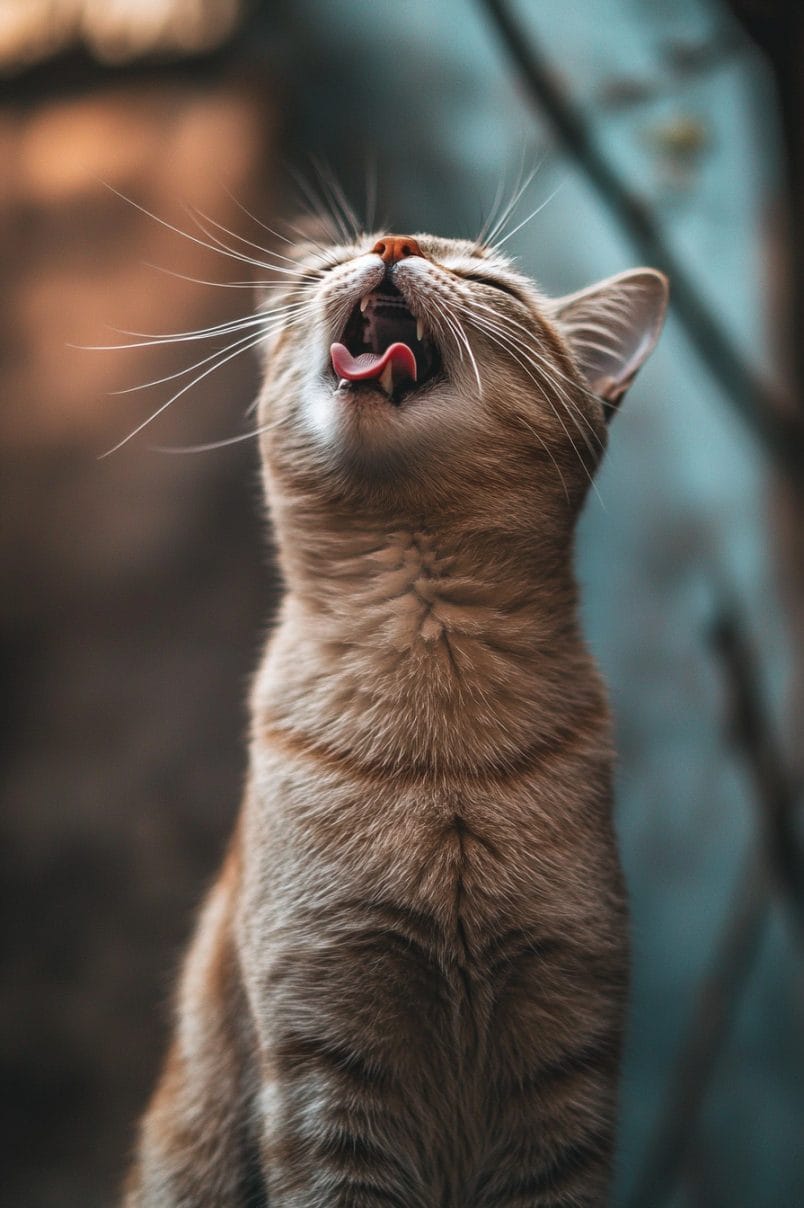
When to See a Vet
If your cat is drooling frequently and you notice any of the following additional symptoms, it’s important to see a vet right away:
Loss of appetite
If your cat suddenly stops eating or shows little interest in food, it could be a sign of discomfort or a more serious health issue.
Drooling combined with a lack of appetite warrants a veterinary visit to find out what’s causing the problem.
Vomiting
Frequent vomiting along with drooling can be a sign of several health concerns, such as gastrointestinal issues or poisoning.
This combination of symptoms should be addressed by a vet to determine the underlying cause and appropriate treatment.
Lethargy
If your cat seems unusually tired, weak, or less active than usual, this can indicate a health problem.
Lethargy, especially when paired with drooling, suggests that your cat might be unwell and needs to be checked by a veterinarian.
Weight loss
Noticeable weight loss is a serious concern and, when combined with drooling, could point to significant health issues such as chronic illness or severe dental problems.
It’s important to consult a vet to address these symptoms promptly.
Difficulty swallowing or breathing
If your cat has trouble swallowing food or is breathing more heavily or labored than normal, these are serious signs that require immediate veterinary attention.
Difficulty in these areas could be due to a variety of conditions, including infections, foreign objects, or other health issues that need professional diagnosis and treatment.
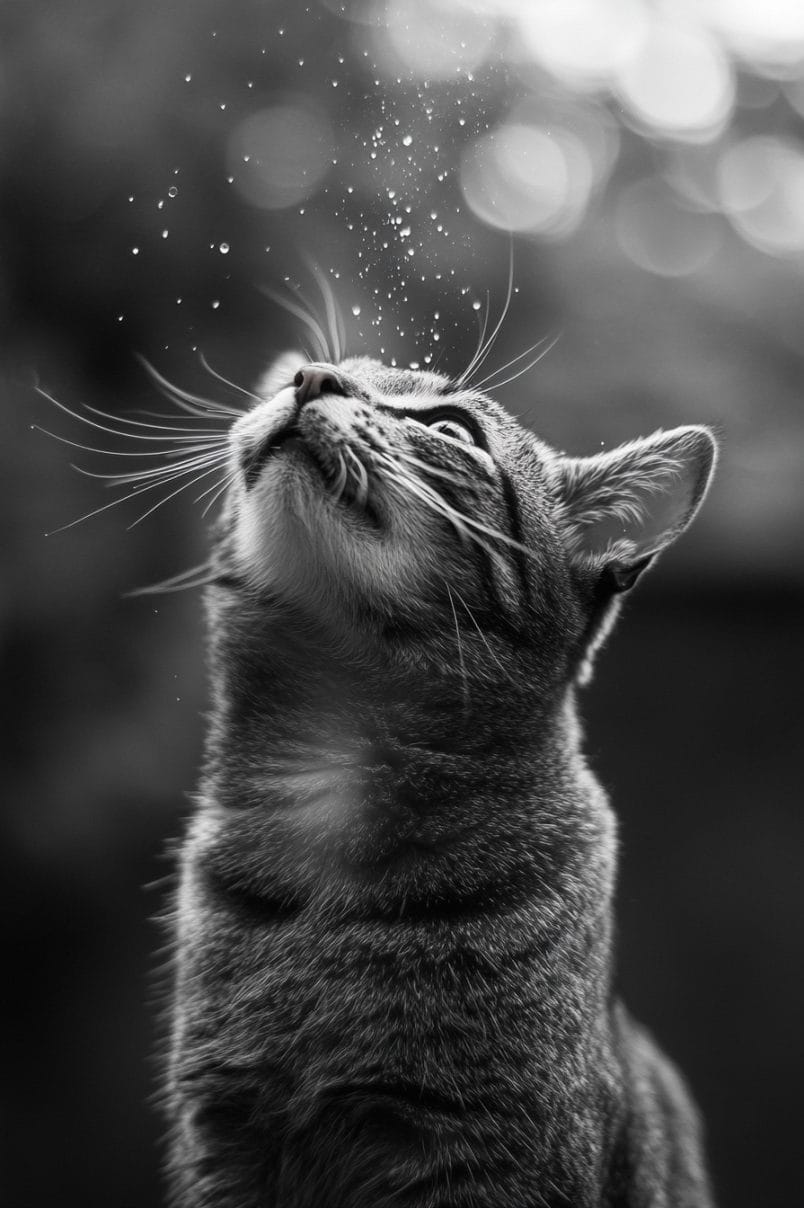
Conclusion
Cat drooling can stem from a variety of causes, some of which can be managed at home with proper care and attention.
By understanding the potential reasons behind your cat’s drooling and employing some effective home remedies, you can often alleviate their discomfort.
However, always keep a close eye on their overall health, and don’t hesitate to consult your vet if the symptoms persist or worsen.
Your feline friend’s health and happiness depend on your vigilance and care.
FAQs
Yes, some cats drool when they are very relaxed or happy, such as during purring or kneading. However, this should be mild and not excessive.
Yes, allergies can sometimes cause drooling if they lead to respiratory issues or irritation in the mouth or throat.
Regular dental care, such as brushing with cat-safe toothpaste and providing dental chews, can help. Adding probiotics to their diet might also improve oral health.
Some medications can cause nausea or a bad taste, leading to drooling. If this happens, consult your vet to see if the dosage or medication needs to be adjusted.
- Does Cat Litter Melt Ice? The Complete Guide to Winter Safety - January 30, 2026
- Happy Tail Dogs: Understanding This Common Canine Condition - January 29, 2026
- How Cold Can Outdoor Cats Handle? Feline Winter Safety - January 27, 2026


GIPHY App Key not set. Please check settings